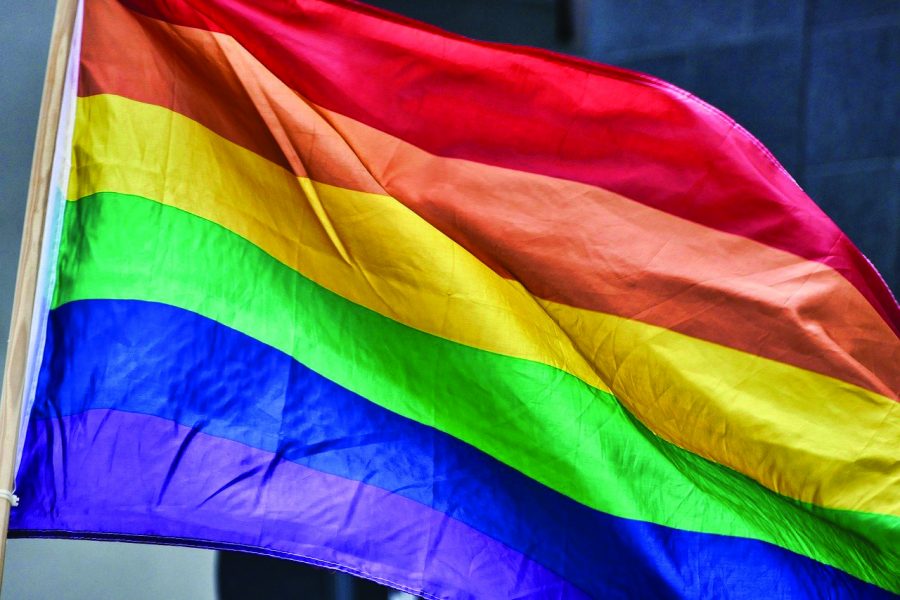Homophobia and LGBTQ+ discrimination today
With the COVID-19 pandemic going on, a lot of people tend to overlook the other issues within the government. If you are anything like me, you don’t pay attention to politics and are trying to avoid them. Personally, I only start to notice politics when it threatens the rights and lives of myself and my peers. During this short news series, I’ll be talking about the homophobia, sexism, and racism going on today in the United States. In this first article, I’ll tackle the battle for LGBTQ+ rights going on inside the government.
The battle for gay rights and same-sex marriage started all the way back in June of 1969. The Stonewall Inn, located in Greenwich Village, Manhattan, is known as the cradle of modern LGBTQ+ rights. Here, the first riots started. After fighting for 46 long years, same-sex marriage was finally legalized nationwide on June 26th, 2015 after Obergefell v. Hodges.
This court case was the first of many, taking place in June of 2013. After being together for almost 20 long years, James Obergefell and John Arthur decide they want to marry because of a health condition the latter has that he’ll, eventually, die from. Living in Ohio that hadn’t legalized same-sex marriage at the time, they had to move to Maryland to marry. After doing so, Arthur died three months later. After learning that Ohio wouldn’t recognize their marriage, Obergefell decided to file a lawsuit.
A similar thing happened just a month later, in July 2013. After David Michener and William Herbert lived a happy life with three children, Herbert died unexpectedly. While his ashes were at the funeral home, they were waiting for a death certificate. Once again, Ohio refused to acknowledge their marriage.
After years of debating and arguing, Justice Anthony Kennedy (along with Justices Ruth Bader Ginsburg, Stephen Breyer, Sonia Sotomayor, and Elena Kagen) declared that the ban of same-sex marriage was a violation of the fourteenth amendment.
“I learned everything I know about LGBTQ+ rights on my own,” Mars Kukert, one of my close friends who identifies as masculine non-binary and queer, said. “Every school I’ve ever gone to has been Christian, so their policy is typically ‘ignore it so we don’t get angry emails from parents.’”
After the death of Ruth Bader Ginsburg, the Supreme Court Justice who was protecting women’s and LGBTQ+ rights, Donald Trump nominated Amy Coney Barret to replace her. As of October 26, the Senate is approving her nomination to confirm her as a Supreme Court Justice. A lot of people, especially members of the LGBTQ+ community, might not know what this means for our rights. With the confirmation of Barret, the Supreme Court could very well deem same-sex marriage illegal again, which puts many lives in danger.
“I didn’t know that was happening,” Mars Kukert said, “I think it’s a concerning step backwards.” The equality we’ve been fighting for so long is being reversed, and a lot of people are doing nothing more than watching it happen.
However, many others, especially Republicans and conservatives, don’t support the LGBTQ+ community. If you don’t “agree” with LGBTQ+, let me put this in perspective for you. Imagine every position of power in the U.S. government is run by someone, not of your ethnicity or culture. Those people are telling you what you can and can’t do, anything from marrying the person you love to not being able to buy a house or go to school. You think that would be kind of unfair, wouldn’t it? Well, with Amy Coney Barret in the Supreme Court Justice, LGBTQ+ rights and women’s rights won’t be safe.
This homophobia is also happening very locally. A lot of people are threatening the lives of members of the LGBTQ+ community. Others are doing nothing more than ridiculing people on the streets who are wearing gay pride clothing or showing PDA with someone of the same gender. The oppression of LGBTQ+ people is a real issue.
You don’t have to sit back and watch all of this happen. You as an individual might feel powerless, but voting and attending peaceful riots (emphasis on “peaceful”) can help move The Supreme Court to a better decision for the people. You can also spread awareness by being educated rather than quiet. A lot of people’s lives are in danger at the moment, so please do what you can to protect my and my community’s rights.
Your donation will support the student journalists of Fargo North High School. Your contribution will allow us to resume physical printing of our newspaper for students at Fargo North!
I'm the editor-in-chief for The Scroll this year. Journalism is one of my few passions and what I'll be doing after high school at MSUM. I'm also involved...




